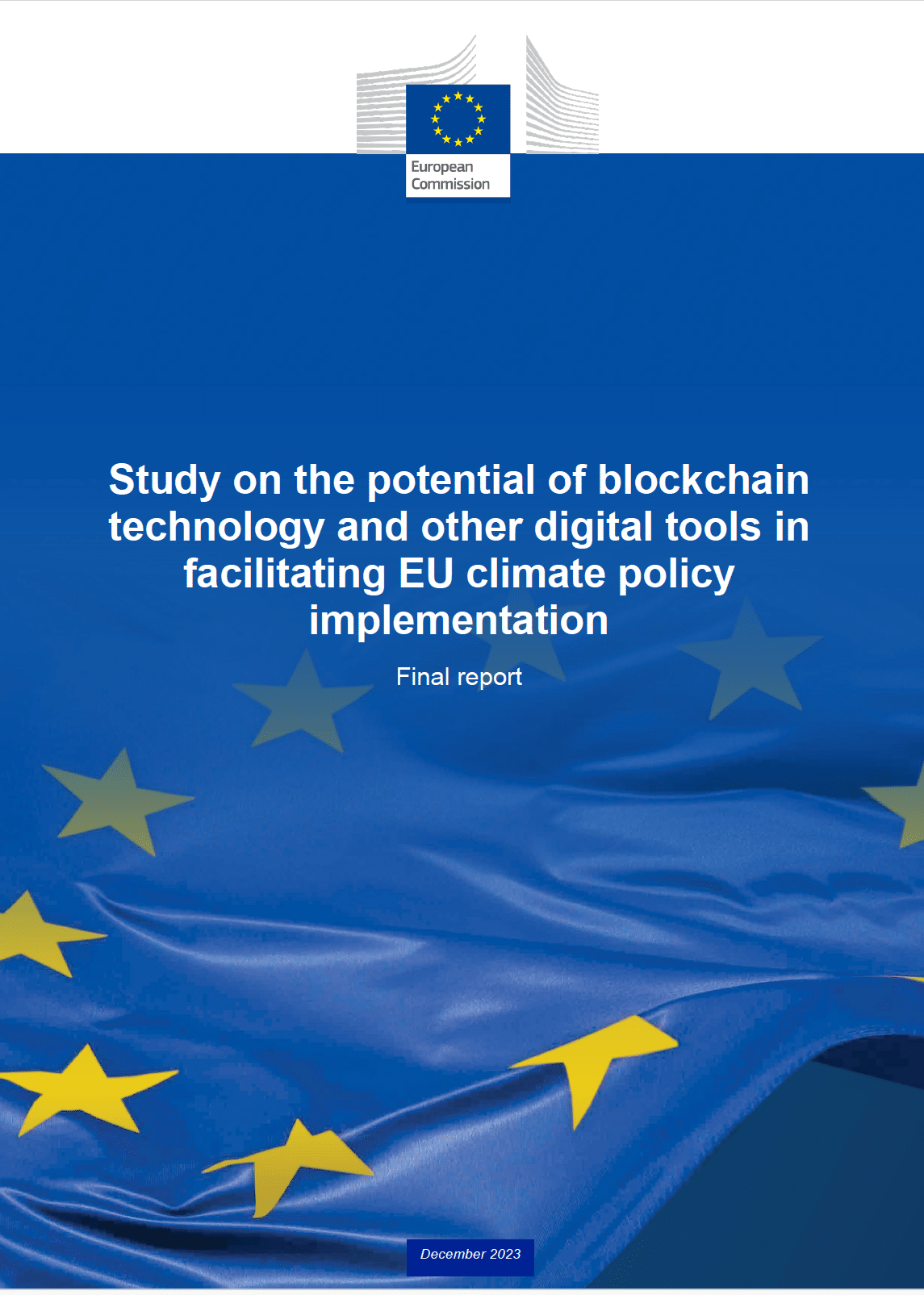Study on the potential of blockchain technology and other digital tools in facilitating EU climate policy implementation
Publication date: 19 Juni 2024 | Report language: EN
This study explored the potential of blockchain technology and digital solutions to support the implementation of European Union (EU) climate policies by the European Commission. The main objective was to identify EU climate policies that can benefit from distributed ledger technologies (DLT) and digital tools. The study comprises three tasks. Task 1 consisted in climate policy mapping and scoping, collecting data to understand EU climate policies, analysing existing use cases, and assessing how DLT can enhance these policies. The climate policies mapped and analysed included: EU Emissions Trading System (EU ETS), Monitoring, reporting and verification of EU ETS emissions (ETS-MRV), Regulation on land, land use change and forestry (LULUCF), Sustainable Product Initiative (SPI), Carbon-Border Adjustment Mechanism (CBAM), Carbon Removal Certification (CRC), Ozone Depleting Substances (ODS), and F-Gas regulation (F-Gas). Task 2 thoroughly examined selected policy options, evaluating the prerequisites for integrating DLT and discussing potential outcomes. Task 3 issued recommendations on DLT and Digital Technologies implementation strategies for climate policy actions, including estimates of implementation cost and time ranges. Overall, the study evaluated the advantages and disadvantages of deploying DLT in EU climate policies, covering aspects such as disintermediation, stakeholder adoption, record-keeping, technological readiness, and interoperability. It also explored the potential impact of DLT on specific climate policies, including CRC, ODS, and F-Gas. Among the digital technologies and options, the study evaluated the potential of using the European Blockchain Services Infrastructure (EBSI).








